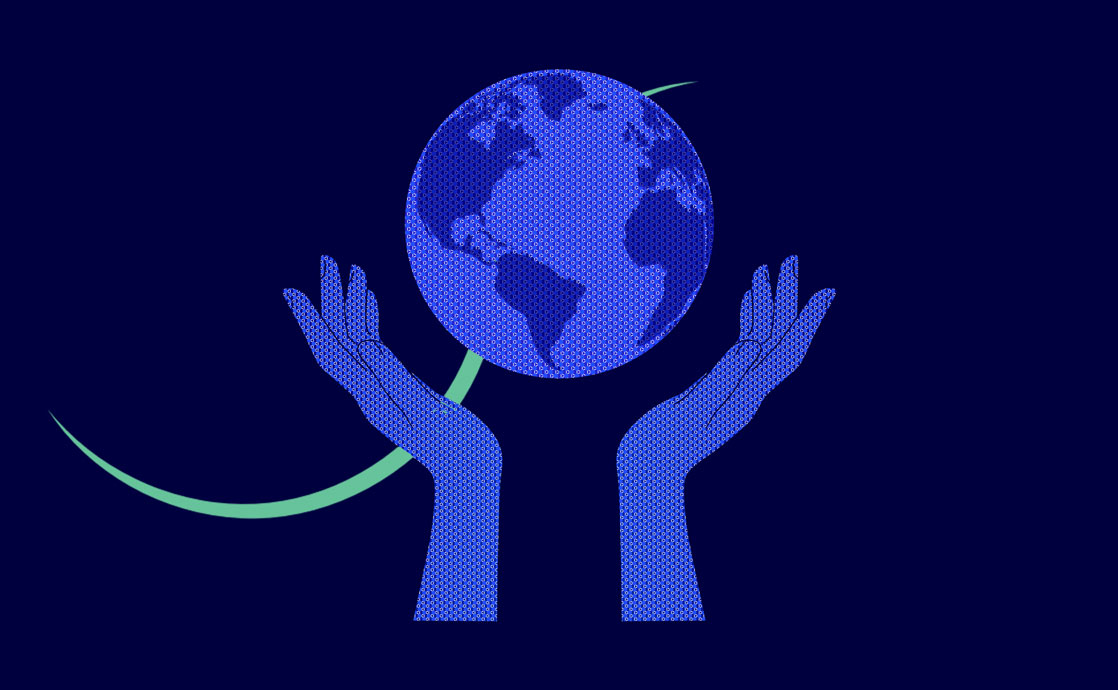The world today is fraught with social upheaval and turbulence, prompting a crucial inquiry: how can individuals cultivate resilience and tranquility amid chaos? The answer may lie in the Bahá’í teachings, which offer profound insights into maintaining a steady hand in the face of societal discord. This article elucidates the tenets of the Bahá’í Faith that encourage individuals to navigate through tumultuous times, thereby fostering unity, understanding, and compassion.
To begin with, the foundational principle of oneness of humanity serves as the bedrock of Bahá’í teachings. This doctrine posits that all individuals, regardless of race, nationality, or creed, are part of a single human family. To recognize this intrinsic oneness provides a pivotal framework for confronting social turmoil. It challenges individuals to transcend entrenched prejudices and biases, proposing that communal harmony is achievable through mutual respect and collaboration. One might ponder: in a world so divided, how can one embrace this principle effectively?
Embracing the oneness of humanity necessitates a deliberate shift in perspective—one that fosters an inclusive mindset. It requires individuals to actively seek common ground amidst diversity, acknowledging the shared experiences that bind us together. Engaging in community dialogue can serve as a conduit for promoting understanding, whereby individuals share their narratives, thereby dismantling stereotypes and fostering empathy. This practice not only engenders a sense of belonging but empowers collective action toward societal betterment.
Furthermore, Bahá’í teachings underscore the significance of justice as a unifying principle in times of crisis. Justice, defined as the measure of the common good, transcends mere legal frameworks; it embodies a moral imperative that advocates for equitable treatment of all individuals. Yet, societal turmoil often obscures this ideal, leading to imbalances in power and representation. The counterpoint to such challenges lies in the active pursuit of social justice, where individuals are called to stand up for the rights of the marginalized and vulnerable. This pursuit can be both daunting and invigorating, as individuals grapple with the complexities of advocating for equity while navigating their own biases.
The key to realizing justice in social contexts is rooted in active participation. This means engaging with local communities, supporting advocacy groups, and listening to underrepresented voices. It beckons individuals to not merely observe injustices but to participate in constructive dialogues and initiatives that aim to rectify systemic inequities. One may ask—can the pursuit of justice render us agents of change when confronted by overwhelming obstacles?
Additionally, the Bahá’í teachings emphasize the transformative power of spirituality in mitigating anxiety and fear during tumultuous times. Spirituality, in this context, is not merely a personal endeavor but a collective journey toward fostering resilience. Through prayer, meditation, and reflection, individuals can cultivate inner peace and fortitude. This spiritual grounding not only fortifies individuals against external upheaval but galvanizes them to act with compassion and understanding. A pertinent inquiry arises: can a deepened spiritual practice empower individuals to address social challenges with grace and poise?
Mindfulness and spiritual reflection afford individuals the clarity to discern potential actions rooted in love and unity rather than fear and division. This transformative process nurtures an awareness of the interconnectedness of all existence, inspiring individuals to embody the virtues of patience, kindness, and forgiveness even in the face of adversity. Thus, it becomes apparent that spirituality serves as an indispensable ally in facing social turmoil.
Moreover, the Bahá’í concept of consultation presents a practical approach to addressing challenges collaboratively. Consultation is characterized by a spirit of openness and collective inquiry, where individuals engage in discourse devoid of egocentric motivations. This paradigm shifts the focus from personal agendas to collective resolution, enabling groups to synthesize diverse perspectives for the common good. The challenge remains: how can we cultivate a genuine spirit of consultation in a world often anchored in conflict and distrust?
To advance this spirit of consultation, it is imperative to establish environments where respectful dialogue thrives. This involves creating safe spaces for individuals to express their thoughts and feelings, promoting active listening, and valuing contributions from all participants. Such an atmosphere diminishes polarization, fostering an ethos of collaboration over contention. As individuals practice consultation, they invariably contribute to the gradual transformation of societal norms, steering conversations toward constructive avenues.
In conclusion, navigating social turmoil with a steady hand requires a multifaceted approach grounded in the principles of the Bahá’í teachings. By embracing the oneness of humanity, pursuing justice with tenacity, nurturing spiritual resilience, and fostering a culture of consultation, individuals can rise above discord and contribute to a more harmonious society. Yet, the journey is fraught with challenges—thus, the ultimate question remains: how can we, as advocates of unity, continuously reflect upon and renew our commitment to these luminous teachings in the face of ever-evolving social landscapes?
